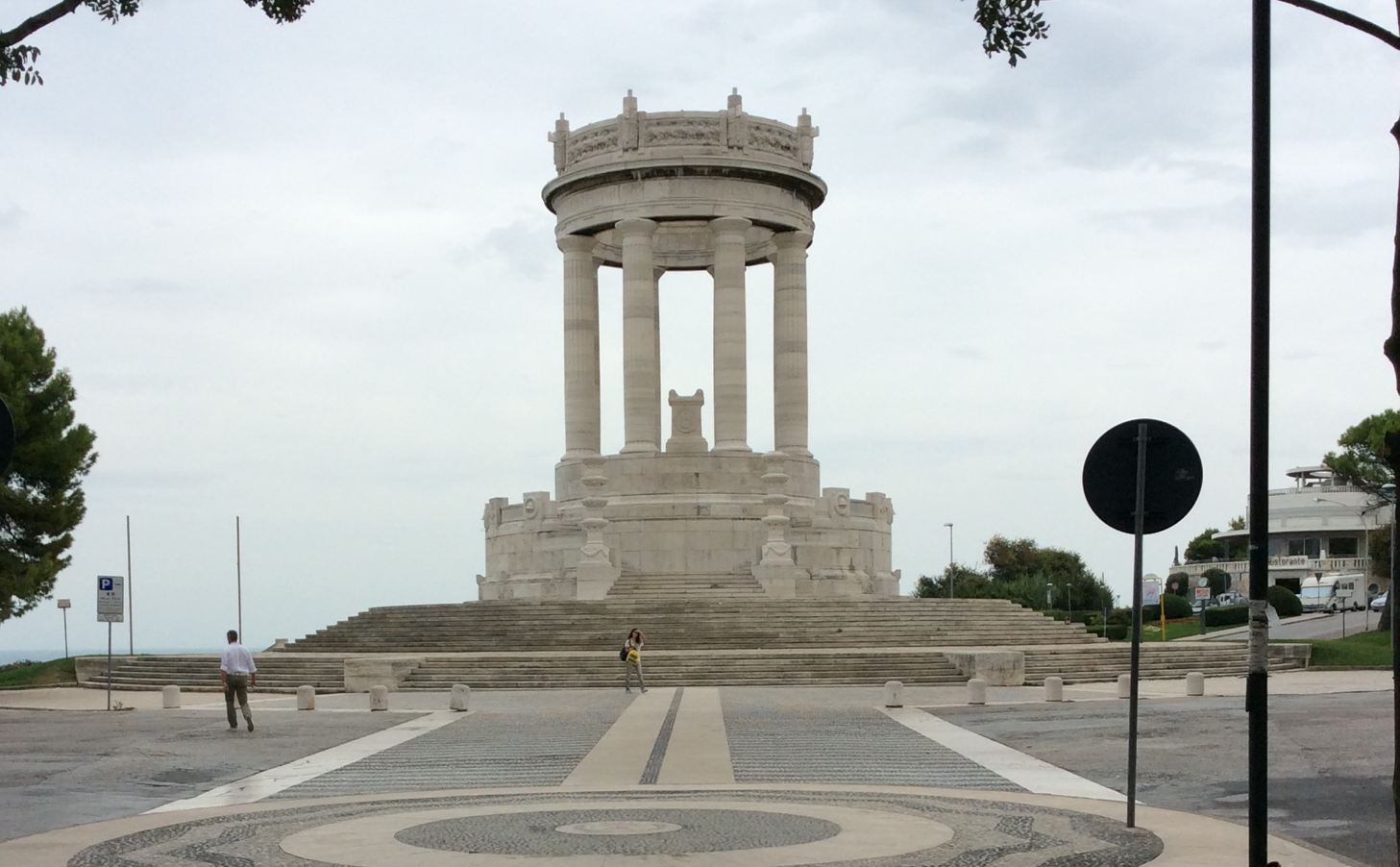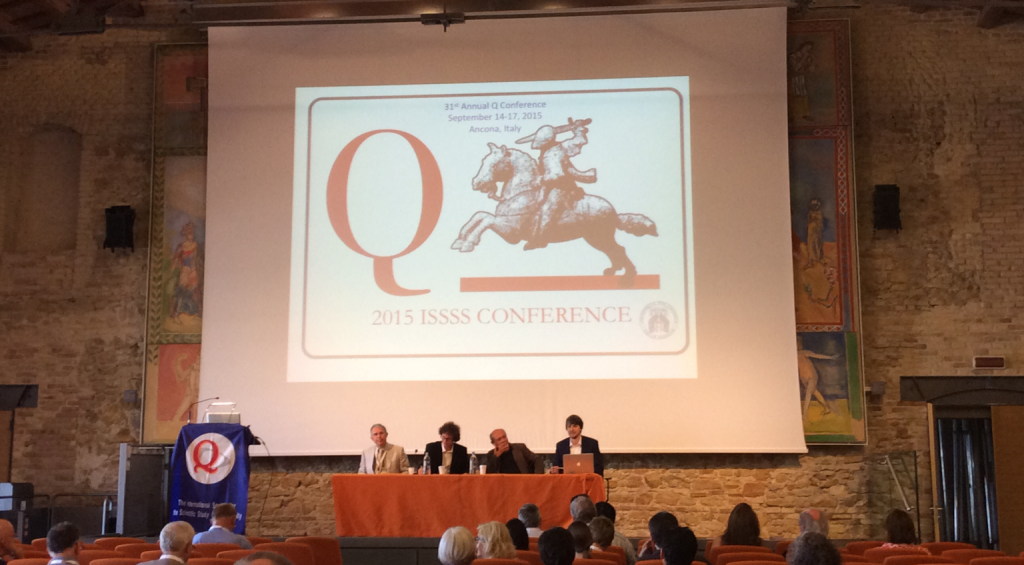by Sarah Hill
The 31st annual Q Conference was this year held in Ancona, a fascinatingly functioning seaport city in the North-East of Italy. The setting provided some lovely vistas of the Adriatic Sea and some much welcomed sunshine for those of us still hoping for summer to arrive in the UK. The organisers from the Università Politecnica della Marche set the bar high for all future International Society for the Scientific Study of Subjectivity (ISSSS) conferences; the conference venue (the stunning SeePort hotel) could not have been bettered and in true Italian style the quality of food was fantastic and the prosecco flowing.
Culinary considerations aside, the hosts arranged over 50 presentations across the three days. Whilst each presentation had one thing in common, Q methodology, the variety of applications was impressive. It was refreshing to see such a range of academics from all fields in attendance; some focussing on how to develop the methodology to fit the needs of the new wave of researchers utilising the method whilst others disseminating results and looking for valuable feedback to move their research forward.
For what is still a fairly niche methodology, albeit one with a momentum of growing popularity, the international representation at the conference was impressive. Delegates from as far away as the United States, Australia and Korea joined a large European presence. It was fantastic to see researchers from a variety of disciplines mingling to share their knowledge; it was particularly rewarding for the more novice “Qers” like myself to be able to benefit from the extensive knowledge and advice from the more experienced Q veterans.
The purpose of my attendance was two-fold; I was at the conference to disseminate the findings of my own Q-study on end of life care for people with dementia but also to pick up some feedback on my research and advice for how to improve my analysis. I was fortunate to not only receive some useful feedback at the presentation itself but also discuss my research and other burning issues during networking time between sessions.
Due to the timetabling required to squeeze 50 presentations into a 3 day conference, several sessions were held simultaneously therefore rendering it impossible to attend every session. Of the sessions I was able to attend several stood out as particularly relevant to the HEG: The first plenary session on software included a very interesting presentation by Aiora Zabala on a new package in R that she has been working on to allow Q analysis within the statistical package. Given the recent interest in using R amongst members of the HEG this could be very useful. There were also a number of fellow health economists presenting their work: Job van exel of Erasmus university presented on using Q to identify whether society supports higher priority to end of life treatments and Rachel Baker, Neil McHugh (both from Glasgow Caledonian University) and van Exel presented on a new application of Q in the form of Q-to-survey. This approach can enable Q to not only identify the subjective views on a topic but also potentially identify their distribution within a population which could prove beneficial for public policy issues.
Overall the 31st Q methodology conference was, in my opinion, a great success.



